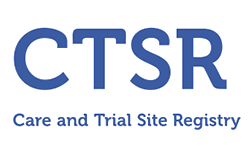Publication authors
Banwarth S, Ait-El-Mkadem S, Chaussenot A, Genin E.C, Lacas-Gervais S, Fragaki K, Berg-Alonso L, Kageyama Y, Serre V, Moore D.G, Verschueren A, Rouzier C, Le Ber I, Augé G, Cochaud C, Lespinasse F, N’Guyen K, de Septenville A, Brice A, Yu-Wai-Man P, Sesaki H,Pouget J, Paquis-Flucklinger V.
Journal
Brain - A Journal of Neurology, volume 137, issue 8, pages 2329-2345
Publication date
June 2014
Abstract
Mitochondrial DNA instability disorders are responsible for a large clinical spectrum, among which amyotrophic lateral sclerosis-like symptoms and frontotemporal dementia are extremely rare. We report a large family with a late-onset phenotype including motor neuron disease, cognitive decline resembling frontotemporal dementia, cerebellar ataxia and myopathy. In all patients, muscle biopsy showed ragged-red and cytochrome c oxidase-negative fibres with combined respiratory chain deficiency and abnormal assembly of complex V. The multiple mitochondrial DNA deletions found in skeletal muscle revealed a mitochondrial DNA instability disorder. Patient fibroblasts present with respiratory chain deficiency, mitochondrial ultrastructural alterations and fragmentation of the mitochondrial network. Interestingly, expression of matrix-targeted photoactivatable GFP showed that mitochondrial fusion was not inhibited in patient fibroblasts. Using whole-exome sequencing we identified a missense mutation (c.176C>T; p.Ser59Leu) in the CHCHD10 gene that encodes a coiled-coil helix coiled-coil helix protein, whose function is unknown. We show that CHCHD10 is a mitochondrial protein located in the intermembrane space and enriched at cristae junctions. Overexpression of a CHCHD10 mutant allele in HeLa cells led to fragmentation of the mitochondrial network and ultrastructural major abnormalities including loss, disorganization and dilatation of cristae. The observation of a frontotemporal dementia-amyotrophic lateral sclerosis phenotype in a mitochondrial disease led us to analyse CHCHD10 in a cohort of 21 families with pathologically proven frontotemporal dementia-amyotrophic lateral sclerosis. We identified the same missense p.Ser59Leu mutation in one of these families. This work opens a novel field to explore the pathogenesis of the frontotemporal dementia-amyotrophic lateral sclerosis clinical spectrum by showing that mitochondrial disease may be at the origin of some of these phenotypes.
DOI link
10.1093/brain/awu138



